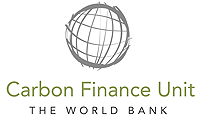Overview
The National Waste Management Agency of Tunisia (ANGED) has launched a project aimed at installing a Gas Recovery and Flaring Project at nine new landfills to be put into operation beginning from 2007 as a part of the National Waste Management Program. The nine landfills are disseminated over the Tunisian Territory and close to the following cities: Bizerte, Sfax, Kairouan, Djerba, Gabes, Monastir, Sousse, Nabeul and Medenine. Apart from Tunis Capital, these represent the major urban agglomerations of Tunisia.
The nine landfills have an aggregated nominal capacity of 3,300 tons of waste per day; i.e. 1.2 million tons of waste/year. The project activity has installed a gas recovery and flaring system in each of the nine landfills, in order to reduce CH4 emissions, and thus generate CERs, while ensuring safety at the landfill sites, serving sustainable development purposes, and providing additional resources to environment protection in Tunisia.
The nine landfills were being put into operation between 2006 and 2008, following competitive bids, which were being progressively launched to select the landfill operators. Sfax and Kairoun has been bundled and awarded to a single operator. That has also been the case for Djerba and Gabes. Each of the other 5 landfills have been awarded separately.
Benefits
The project has had a significant contribution to sustainable development.
- The project has demonstrated the application of a world standard methane capture system in Tunisia, and has allowed for replicating such experience in the country;
- Socio-economic potential benefits include the development of endogenous capacities to better manage landfilling operations, the development of a number of employment opportunities in the different infrastructure works involved: wells building, piping network, management and monitoring of the system, etc.;
- By recovering landfill gas, it has also contributed to mitigation of pollution, and thus, to limiting the landfill impacts by preserving air quality, within the neighboring human establishments of the targeted regions;
- The project has ensured appropriate leachate management practices. In doing so, the project has reduced the impact of the landfills on the soils and on ground water resources, and thus, helped preserve the environment;
- The project has contributed to the National Solid Waste Management Program by allocating 25% of the CERs revenues to rehabilitate a number of existing dumps. By preventing these dumps continuously impacting soils, groundwater resources, air quality and public health, the financial resources provided by the project have therefore restored the ecological equilibrium in the targeted areas and encouraged human economic and social activities in the surrounding areas, all of which has effectively contributed to sustainable development.
- The project has also provided for new foreign currency resources for Tunisia and thus improved the profitably of the waste sector.
- The project has ensured high standard practices in waste management in Tunisia, and thus, has contributed to sustainable development.
